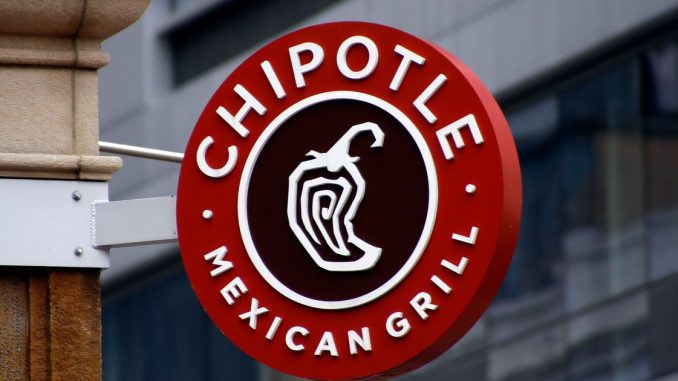
Chipotle has agreed to pay $240,000 to two dozen workers after federal officials accused the burrito chain of closing its store in Augusta, Maine, expressly to snuff out a union drive.
The settlement with the National Labor Relations Board also requires the company to give affected workers preferential treatment in rehiring for a year, and to post notices about workers’ rights at 40 Chipotle stores in New England.
Chipotle United, the group representing workers from the Augusta store, called the settlement a “huge win” on Monday.
“Chipotle just got put on notice ― union busting will not be tolerated and there’s no way around it,” the group said in a tweet.
In a statement to HuffPost, Laurie Schalow, the company’s chief corporate affairs officer, said it closed the store “because of staffing and other issues and not because of any union activities.”
“We settled this case before any hearing or any formal decision on the issues not because we did anything wrong, but because the time, energy and cost to litigate would have far outweighed the settlement agreement,” Schalow said.
Chipotle closed down the Augusta store last July, after workers filed for a union election. The company said at the time that it decided to shutter the store due to staffing issues. But the union called it “union busting 101” and accused the fast-food chain of retaliation. The labor board’s general counsel looked into the allegations and found merit in them.
Last November, the board’s general counsel filed a complaint against Chipotle saying the closure was illegal and the company should have to reopen the store. Under U.S. labor law, an employer cannot legally close an individual worksite because of union activity there (though it is perfectly legal to shut down the whole business and lay off the entire workforce to avoid a union).
A number of high-profile organizing campaigns over the past year have involved store closures that workers allege was retaliation for their union efforts. Starbucks has shuttered several stores where workers have been organizing, and those closures are now the subject of NLRB complaints.
Keith Srakocic via Associated Press
Last August, Trader Joe’s shuttered its wine store in New York City just as workers there were about to go public with a union campaign. Workers told HuffPost they believed the closure was retaliatory, but Trader Joe’s denied it was because of union organizing.
Even if officials can prove such a closure was retaliatory, it’s extremely difficult as a practical matter to force a company to reopen a store. More likely the employer would reach a settlement bringing workers back pay for the jobs they lost, as happened in the Chipotle case.
An NLRB spokesperson said the $240,000 sum in the Chipotle settlement covers back pay and other “financial harm” suffered by the two dozen workers.
The board’s current general counsel, Jennifer Abruzzo, an appointee of President Joe Biden, said she wants to make workers “whole” for more than just lost wages. For instance, workers could be entitled to money associated with out-of-pocket medical expenses or credit card debt if it stems from their job loss.


Be the first to comment